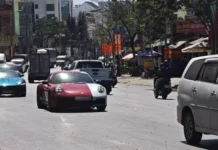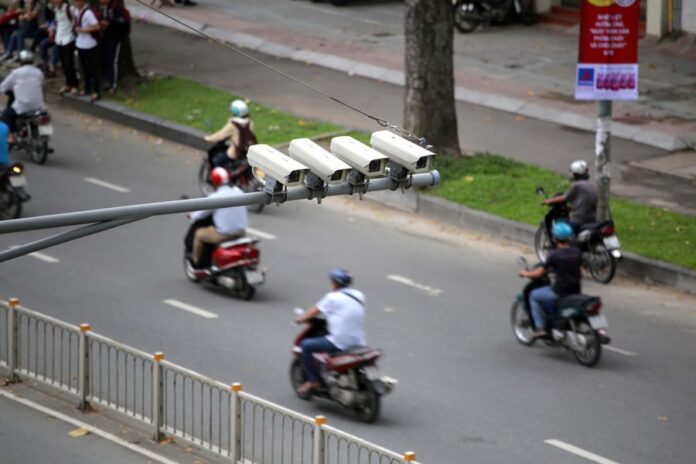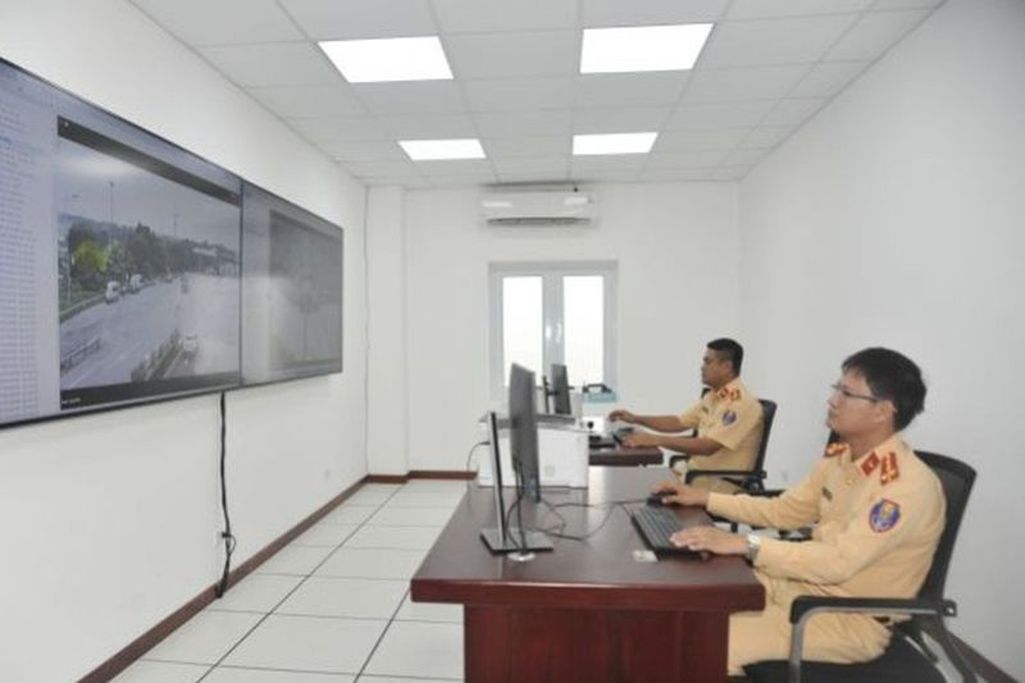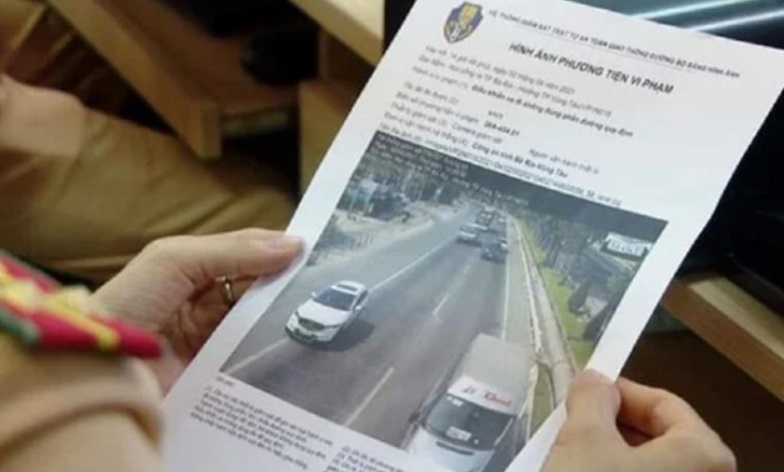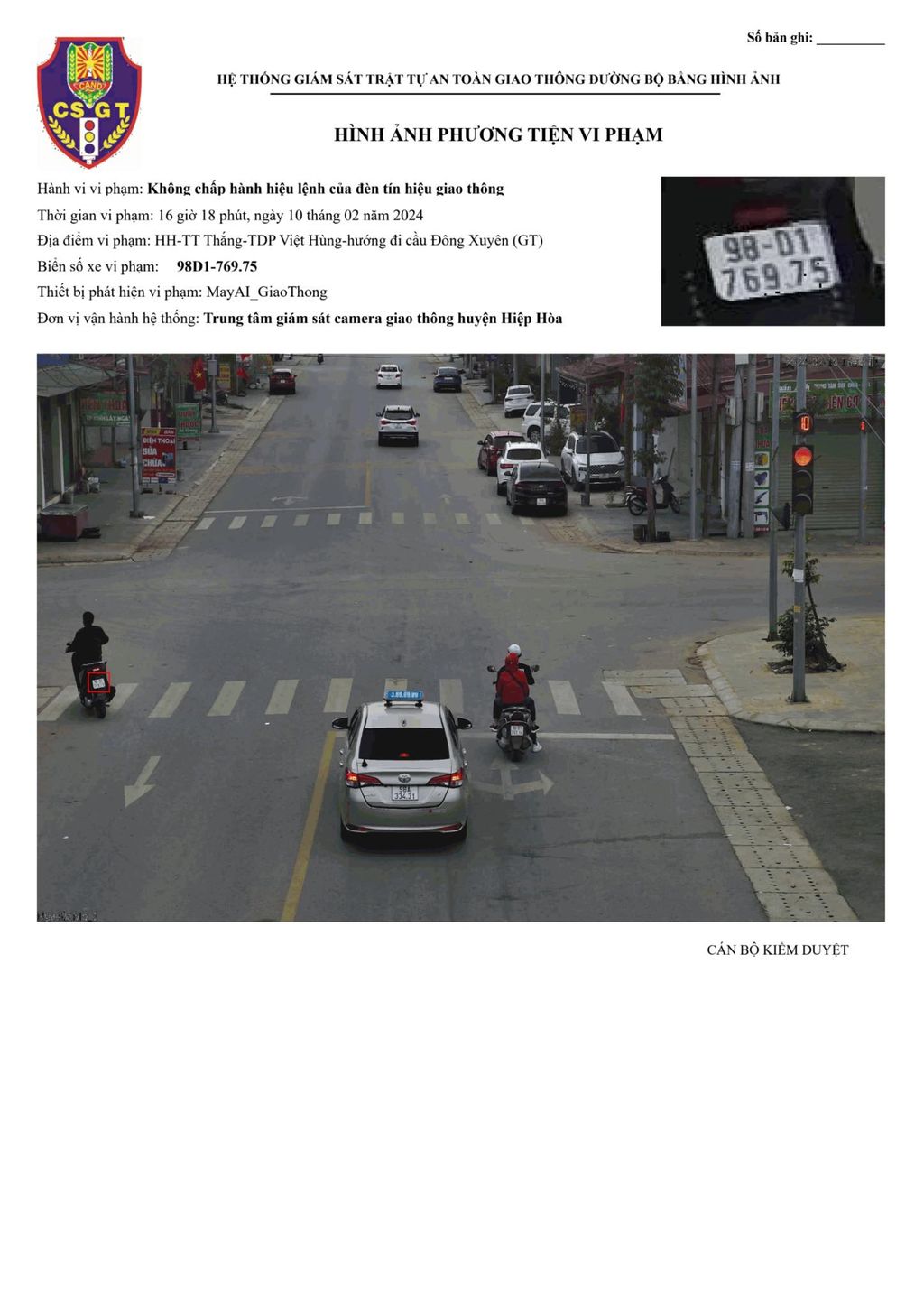For every day the fine is overdue, the traffic violator must pay an additional 0.05% on the total amount of the unpaid fine.
From January 1, 2025, the processing of traffic violations without stopping the vehicle for inspection will be carried out through the form of retrospective punishment, as stipulated in Circular 73/2024/TT-BCA.
According to the regulation, in cases where there is a violation but the vehicle cannot be stopped for control and violation handling, within 10 days from the date of detection of the violation, the authorized person of the Police authority where the administrative violation is detected will identify vehicle information, vehicle owner, and related organizations or individuals through the vehicle registration agency, the National Database on Population, and other relevant organizations or agencies. This information will be used to send a notification of the retrospective punishment to the violator within 10 days from the date of detection of the violation.
If the vehicle owner does not reside in the area where the violation occurred or is not under the jurisdiction of the commune-level police, the collected information will be transferred to the competent authority at the district level where the vehicle owner resides. The notification of punishment can be sent in writing or electronically through the VneTraffic application.
The traffic police will also publicly disclose violation information on the electronic information pages of the Traffic Police Department and the VNeTraffic application so that people can look up and contact to resolve the violation.
If the retrospective fine is not paid by the due date, enforcement of the penalty decision shall be enforced in accordance with Clause 1, Article 78 of the Law on Handling of Administrative Violations 2012 (amended Clause 39, Article 1, Law on Handling of Administrative Violations amended in 2020). Within the time limit for executing the penalty decision prescribed in Clause 2, Article 68, Law on Handling of Administrative Violations 2012 (amended in 2020), the time limit for executing the decision shall be 10 days from the date of receipt of the penalty decision; If the penalty decision states an execution period of more than 10 days, it shall be executed according to that period.
For cases of paying the fine in installments, apply according to Clause 2, Article 79 of the Law on Handling of Administrative Violations 2012 (amended in 2020), the time limit for paying the fine in installments shall not exceed 6 months from the date the penalty decision takes effect; the maximum number of times the fine is paid shall not exceed 3 times.
Individuals and organizations subject to penalties must pay the fine at the State Treasury or into the account of the State Treasury specified in the penalty decision, except in cases where the fine has been paid in accordance with Clause 2, Article 78 of the 2012 Law on Handling of Administrative Violations, which stipulates that for remote, mountainous, border, and island areas where traveling is difficult, the individual or organization subject to the penalty may pay the fine to the authorized person. The authorized person shall be responsible for collecting the fine on the spot and depositing it at the State Treasury or into the account of the State Treasury within no later than 7 days from the date of collection of the fine.”
Notably, if the above-mentioned deadline for paying the retrospective fine is exceeded, the vehicle owner will be forced to comply with the penalty decision, and for each day of delay in paying the fine, the individual or organization violating the law must pay an additional 0.05% on the total amount of the unpaid fine. Thus, the formula for calculating the late payment interest is: Late payment interest = 0.05% x Retrospective fine amount x Number of days late. Accordingly, the estimated late payment interest rate is up to 18.25%/year.
TT (Tuoitrethudo)
“Driving Without a License: A Costly Mistake”
The Decree 168/2024/ND-CP on administrative sanctions for violations of road traffic order and safety in the field of road traffic will come into force in 2025. This new decree is set to bring about significant changes to the existing road traffic regulations in Vietnam, with the aim of improving road safety and maintaining order on the country’s bustling roads.

























